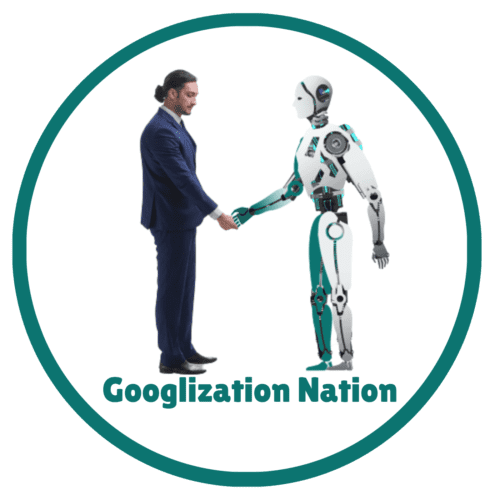Reinvent Yourself in 2021, Growth Mindset | Lead with Levity
An Interview with Ira S Wolfe
WHAT TO EXPECT
How can you have the courage to break the mold, get out of your comfort zone, and embrace a new direction in life? This is a question people have struggled with forever, but many more are facing this challenge in light of the tumultuous past year. Whether it’s pivoting to a new career or just adapting to a new way of doing things, everyone needs to pivot sometime.
To explore this question, Ira Wolfe sat down with Dr. Heather Walker on the Leading with Levity podcast. They discuss how Ira makes change work for him, builds great teams, markets with common sense, adapts to new challenges, and nurtures his growth mindset to break the mold.
LISTEN, WATCH, SUBSCRIBE
Quotes
[7:04] “I was a marketing company that just happened to be a dental practice.”
[10:10] “I look for people who are passionate and want to grow, and who are interested in what we’re doing.”
[11:00] “ “Culture is hard.”
[15:43] “Adaptability is your job.”
[27:17] “The growth mindset is: life’s a journey, and we’re going to make mistakes, and we’re going to have to learn.”
Podcast Notes
Many of us are in a tough situation right now: because of uncertainty or instability, we find ourselves needing to decide between making a career pivot or sticking it out. As a guest on the Lead with Levity podcast, Ira talks to Dr. Heather Walker about what it was like to walk away from his six-figure dental practice and embrace the life of an entrepreneur.
Making Change Work for You [4:54]
[7:04] “I was a marketing company that just happened to be a dental practice.”
In fifth grade, Ira decided he wanted to be a dentist. He embraced that choice through school, dental school, residency, and a successful practice. But then came the realization: he loved everything about dentistry except the dentistry.
This realization made Ira take stock of what he really enjoyed about his profession, which turned out to be what most dentists hate–actually running the business. He discovered that his passion was not so much dentistry, but rather growing his business and making it the best it could be.
This realization is what led him to make the big change from dentistry to business, a pivot that might seem crazy. He realized he was never satisfied with simply nurturing the business he already had, he wanted to be making new things.
Building a Great Team [8:20]
[10:10] “I look for people who are passionate and want to grow, and who are interested in what we’re doing.”
Part of constantly starting new projects is building new teams, and Ira has a lot experience with getting new teams going. To build the right team, the most important thing is to make sure that passions are aligned. This means that Ira’s teammates need to not only share a passion for the project or business, but they also have to be passionate about growth.
Since Ira only hires people who want to grow, he also makes sure to provide training and create opportunities for growth, rather that is within their role or in another area. Some employees focused on getting better at what they were doing within the business, but others chose to move on to bigger and better things.
In this time, training can now happen virtually, but employees can also work virtually. For instance, Ira has two remote teammates, one based in Missouri and one based in Georgia. As long as their reason for taking the job is more than just having a job, they can be good teammates.
Creative Marketing Creates Levity [10:50]
[11:00] “Some of this is tough. Culture is hard.”
Ira’s marketing strategy can be a little whimsical, employing plays on words like “deep shift” or “FCDD up.” Part of this strategy is creating some humor that aligns with his culture, but it’s also a play to capture interest. It’s almost common sense that interesting titles and phrases grab people’s attention and keep them around to hear what you have to say.
Creative marketing can be as simple as finding a nifty bit of alliteration that will just make people pause for a second. For instance, Ira works with a company that develops adaptability assessments. Marketing the test as “adopting adaptability” gives a common-sense understanding of what the product is, but has just enough flair to capture interest.
Adaptability and the Death of Normal [15:43]
[15:43] “Adaptability is your job.”
Normal has passed away. He lived with his wife Constance and his daughter Certainty. Normal passed away due to complications from coronavirus. It is time to mourn the loss of normal, but it is also time to celebrate the time of normalcy we did have and begin to move on.
Normal is succeeded by opportunity, and right now, it is everyone’s job to be adaptable to embrace opportunity. There is no going back to normal, if there ever was such a thing. We live in a world where elevators are restricted to two people, and employees have to Zoom into meetings happening down the hall.
But just because normal is over doesn’t mean we have to worry. We had a good run in our crowded offices and busy stores. But, now that we are coming through this trying time, it is time to adapt and embrace new opportunities, and get ready for whatever is coming next.
Breaking the Mold [20:19]
[27:17] “The growth mindset is: life’s a journey, and we’re going to make mistakes, and we’re going to have to learn.”
Getting out of your comfort zone, trying new things, and having the courage to put yourself out there all rely on having the right mindset. Carol Dweck champions the growth mindset, which differs from the fixed mindset by being willing to take the chance to grow. Having a growth mindset means always being willing to take new chances, and never telling yourself you can’t do something.
Having a growth mindset allowed Ira to move away from his successful but unfulfilling dental practice and create something that would make him truly happy. Beyond having this mindset, Ira also took the time to identify his transferable skills and find out how he can use them in another venture. For him, he figured out that he truly loved running the practice instead of doing dental work, so he could transfer those business skills into a new opportunity.
Finally, breaking the mold requires being willing to stop doing things just because they are expected of you. For instance, when Michael Jordan pivoted to baseball for a time, it was not at all expected of him. Even though he eventually returned to basketball, he could have become a strong baseball player, but only because he was willing to take the leap and do things for himself.


